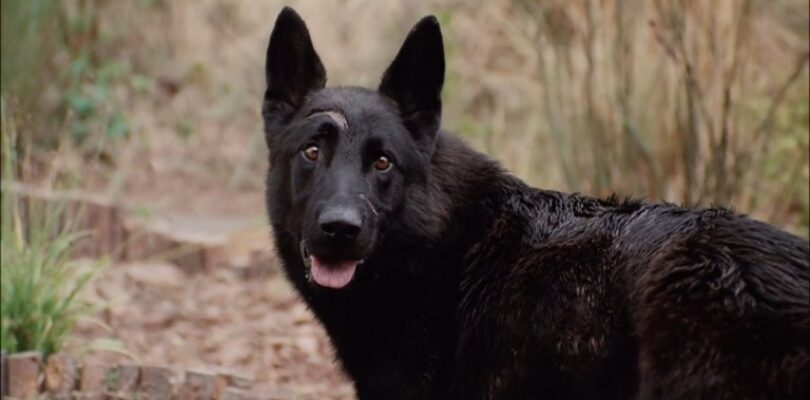Prior to the release of A Breed Apart (2025), it was touted by some of the marketing as a “meta-sequel” to The Breed (2006). That claim is only true if you stretch the meaning of whatever a “meta-sequel” is supposed to be. It’s really just a new movie about killer dogs with only vague similarities to The Breed and a bunch of other dog-attack movies.
Marketing A Breed Apart by using an association with The Breed not only barely feels true, it also hurts the newer movie by comparison. A Breed Apart is a mess (you can read all about it here), but The Breed is a pretty good movie. And when you compare the two, The Breed looks like a masterpiece. Here are six reasons why The Breed is better than A Breed Apart.
Real Dogs!
The Breed used 29 dogs handled by 10 trainers. The dogs were in the care of Gentle Jungle, a well-established and highly respected animal training service with decades of experience and many high-profile credits to their name. There were clearly dogs on the set of A Breed Apart as well, but the difference is that The Breed used their dogs in almost every action scene throughout the film, and very little CGI was used. A Breed Apart relied heavily on AI for its action sequences.
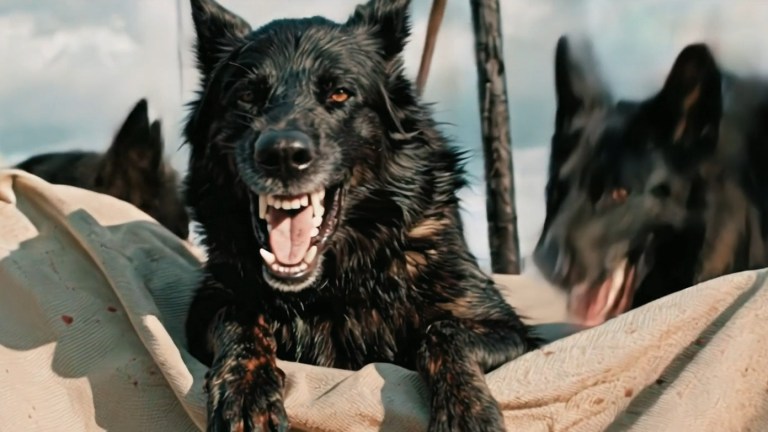
Seeing actual, real-life dogs chasing, biting, and barking at actual, real-life humans has a huge impact on the effectiveness of the movie. In a behind-the-scenes documentary on the DVD of The Breed, director Nick Mastandrea says, “Once you get into any CGI anything, then why even make them dogs? Why not just make them some sort of creatures?” If AI were an option at the time of filming, he likely would have had the same reaction. Real is better whenever possible, and that holds true against CGI and AI.
The Special Effects Look Much Better
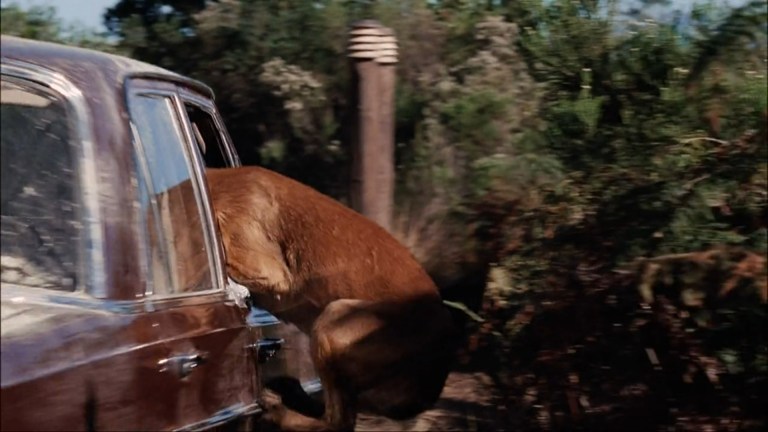
Not every action set-piece in The Breed uses real dogs. Some stunts were just too dangerous or too complicated for a live animal to perform. For example, late in the movie there is a scene where a dog jumps halfway into the open window of a car. The dog tries to bite the people inside, but the animal is smashed against a post and is violently ripped out of the car. They couldn’t use a real dog for the impact, so they used a lifelike fake dog. In the final film, it looks great. It’s a big impact with realistic movement, because it is real (as in, it is done practically instead of using visual effects).
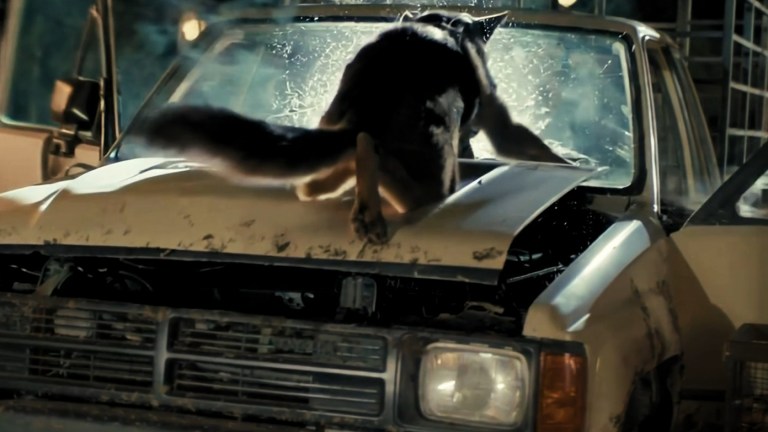
Thinking back to watching A Breed Apart, there’s a scene where a puppy is kicked like a football in a field goal attempt. When it comes to the action, the dog is, of course, generated by AI. The dog looks terrible, and the rapid-fire cuts in the sequence make it hard to tell what’s happening. There’s no true sense of impact. So, both sequences include special effects—one practical and one visual—and it’s the practical effect that looks and feels better.
Using Practical Effects Leads to Creative Solutions
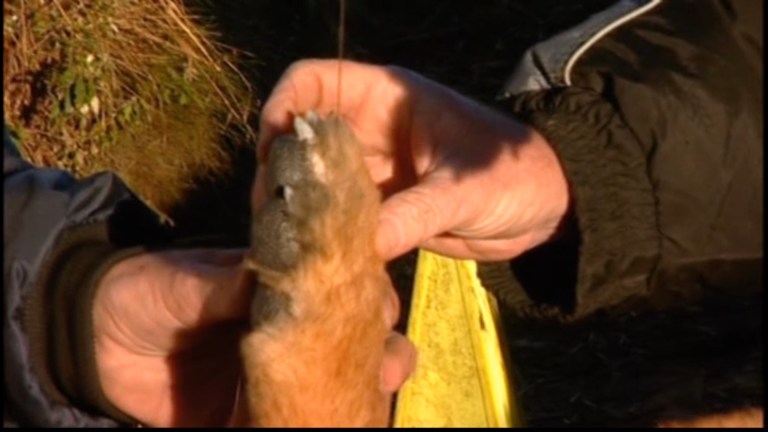
There is an additional benefit to practical effects which viewers might not think about as they watch a movie. Practical effects force filmmakers to come up with creative solutions. This is more of a general statement rather than a specific contrast between The Breed and A Breed Apart, but the behind-the-scenes documentary on The Breed DVD does show the director and his crew discussing how to create specific shots and sequences. It shows them working through issues and coming up with something that will work practically while looking great on film.
Going back to the example of the dog smashed by a post in The Breed, they first tried using a fake dog that was rigidly posed in a standing position. It looked awful, but the more lifelike dog was too limp to look like it was trying to get into the car. So they came up with the idea of attaching the fake dog to the car with fishing line so it could be positioned properly in the lead-up, and when it smashed against the post the line would break and the dog would fly off. It worked beautifully. This sort of creative thinking can be seen in tons of movies. Famously, Steven Spielberg says Jaws is scarier because their fake shark didn’t work like they wanted, so they had to make adjustments that turned out better than their original ideas. Not every film crew will have that kind of fortune, but doing most of the difficult special effects work in post-production like A Breed Apart limits that kind of collaborative creativity.
The Story Makes More Sense
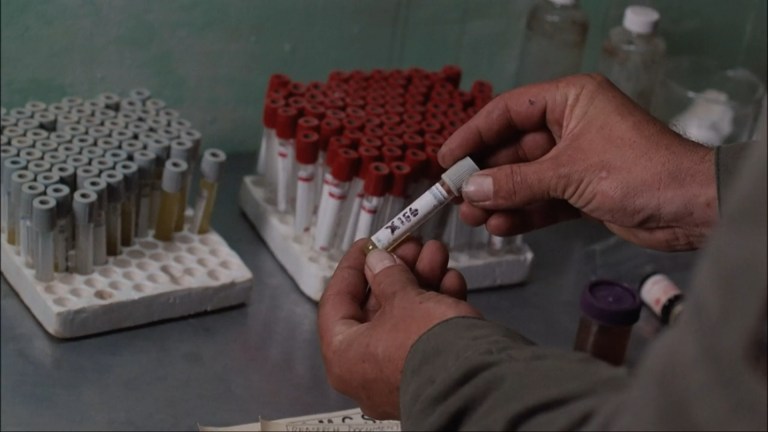
We all know the AI effects in A Breed Apart are awful to look at, but there are other problems in the film. It is stated in the credits that A Breed Apart is inspired by The Breed, but that barely feels like the case. Sure, they’re both movies about dogs attacking people on an island, but that’s about all they have in common. The Pack (1977) is also about dogs attacking people on an island, and there are many other dog-attack movies. The directors have stated in an interview that they were approached to make a sequel to The Breed, but didn’t want to do a straight sequel or even a remake. They wanted to make their movie different. Fair enough, but why keep the idea that it’s an inspiration, or even a “meta-sequel” as it’s been referred to, if the stories are this different and the similarities are largely generic?
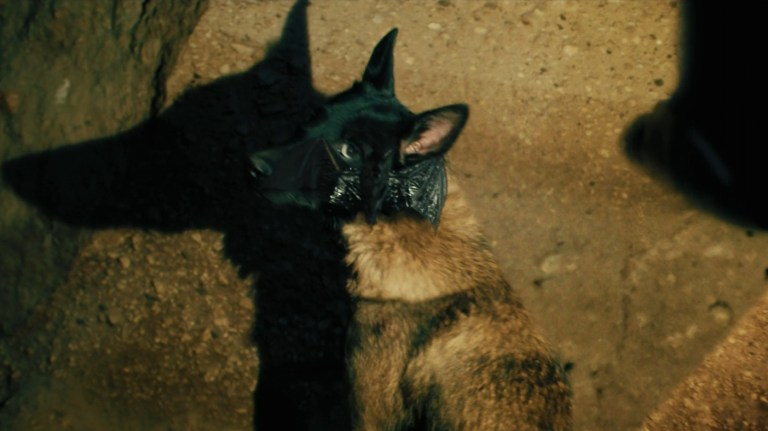
The big difference is, The Breed actually makes an attempt to explain why the dogs are so violent. It’s brought up multiple times in the movie, and the surviving characters actually go to a location that more or less gives them confirmation about their assumptions. The most A Breed Apart does to explain its killer dogs is to show a bat on a dog’s face. Unless I missed something, that’s all the explanation we get. A bat on a dog, then thirteen years later a bunch of dogs try to kill people despite the fact that rabies (if it is rabies) is fatal. I don’t need a full origin story, but if you start explaining, you should probably at least try to make it make sense.
Michelle Rodriguez is Awesome
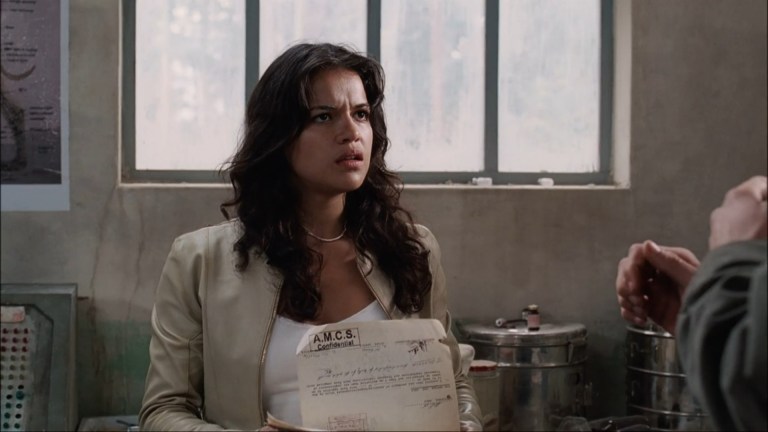
No offense is meant to any member of the cast in A Breed Apart. I really like them, and they did well with what they were given. But, when compared to the cast of The Breed, Michelle Rodriguez is the best of them all. She’s great in action movies, and she always seems game for stunts. Behind-the-scenes footage shows that she was actually very nervous when it came time to do some of the interactions with the dogs, especially when one bite’s her character’s leg, but she did it. Multiple times. She’s awesome.
It’s Produced by Wes Craven
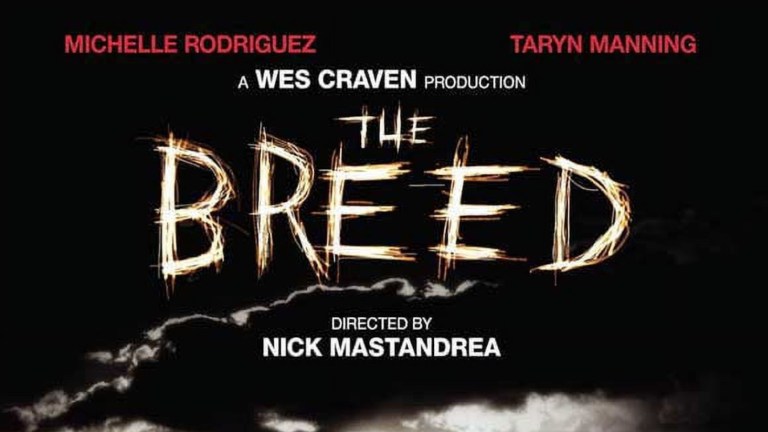
Okay, so, saying Wes Craven’s name when promoting The Breed is kind of a bait and switch. Yes, Wes Craven is an executive producer of The Breed, but his actual involvement in the creative side of the movie is likely none. I’ve tried looking up interviews to see if he ever spoke about the movie, but I couldn’t find anything. However, even just having Wes Craven’s name attached to a movie is pretty cool. That’s all this point is about, just pointing out that an association with Wes Craven in any capacity already starts you off in an advantageous position. A Breed Apart is only using Wes Craven’s name in a secondhand kind of way by saying their movie is inspired by The Breed.

